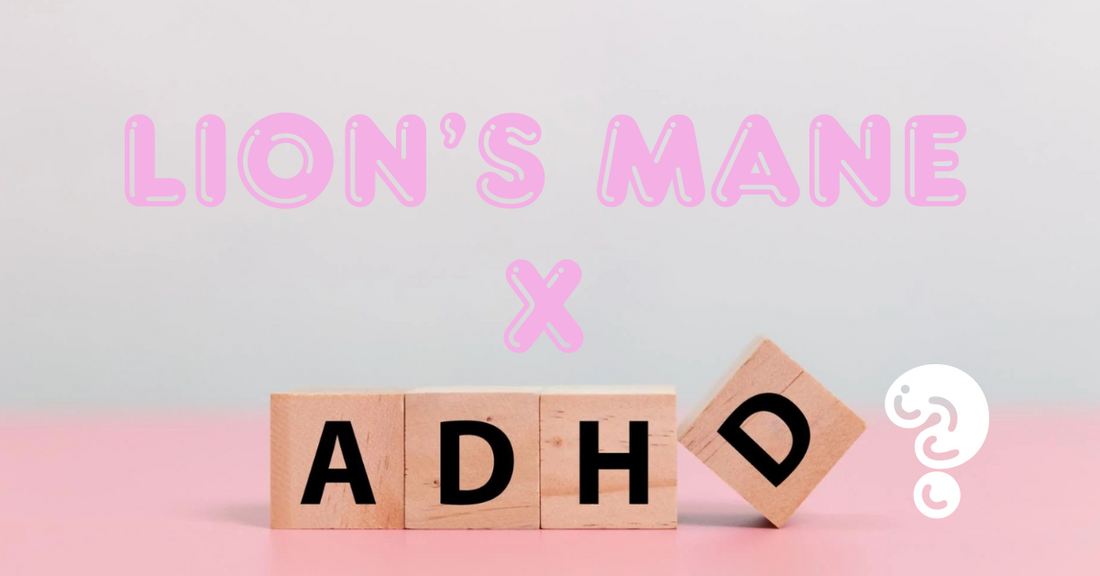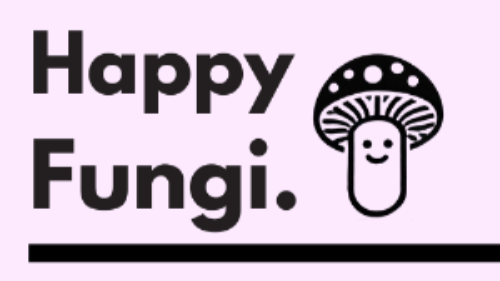
Can Lion’s Mane Help with ADHD? Exploring the Benefits and Science Behind This Brain-Boosting Mushroom
Share
Attention Deficit Hyperactivity Disorder (ADHD) affects millions of people worldwide, often presenting challenges with focus, attention, and executive functioning. While conventional treatments like medication and therapy are widely used, there’s growing interest in natural remedies that may support brain health. Among these, Lion’s Mane (Hericium erinaceus), a unique medicinal mushroom, is capturing attention for its potential neuroprotective benefits.
In this post, we’ll explore the scientific evidence behind Lion’s Mane and its possible role in managing symptoms of ADHD. While we can’t make any specific claims, the available research and mechanisms are intriguing enough to warrant a closer look.
What is Lion’s Mane?
Lion’s Mane is a mushroom known for its distinctive, cascading appearance resembling a lion’s mane. Traditionally used in Chinese medicine, it has recently gained popularity for its potential to support cognitive health. Its benefits are linked to several bioactive compounds, including hericenones, erinacines, beta-glucans, and ergothioneine, which may influence brain function.
How Could Lion’s Mane Help with ADHD?
1. Stimulating Nerve Growth Factor (NGF):
- Lion’s Mane contains compounds called hericenones and erinacines, which have been shown to stimulate the production of NGF.
- Why this matters: NGF is crucial for the growth, maintenance, and repair of neurons. For individuals with ADHD, enhanced brain plasticity and improved communication between neurons may support better focus, memory, and executive function.
2. Reducing Oxidative Stress
- Lion’s Mane is rich in ergothioneine, a powerful antioxidant that can cross the blood-brain barrier.
- Why this matters: Oxidative stress can impair brain function and is associated with ADHD. Protecting neurons from damage may improve cognitive clarity and attention.
3. Supporting the Dopamine System
- While direct research is limited, some studies suggest Lion’s Mane may influence the dopaminergic system, which plays a critical role in motivation, focus, and reward processing.
- Why this matters: ADHD often involves dopamine dysregulation. Supporting dopamine balance could enhance attention and reduce impulsivity.
4. Modulating the Gut-Brain Axis
- Lion’s Mane acts as a prebiotic, promoting the growth of beneficial gut bacteria.
- Why this matters: ADHD often involves dopamine dysregulation. Supporting dopamine balance could enhance attention and reduce impulsivity.
5. Reducing Anxiety and Stress
- Studies have shown that Lion’s Mane may alleviate symptoms of anxiety and depression, likely due to its anti-inflammatory properties and NGF stimulation.
- Why this matters: Anxiety often co-occurs with ADHD, and reducing stress may help individuals better manage their symptoms.
The Science So Far...
While the mechanisms are promising, it’s important to note that specific studies on Lion’s Mane and ADHD are limited. Most existing research focuses on its broader cognitive benefits, such as:
- NGF Stimulation: Animal studies suggest Lion’s Mane promotes nerve regeneration and supports brain health.
- Cognitive Decline: Research in older adults has shown improvements in memory and mild cognitive impairment after taking Lion’s Mane supplements.
- Mood Regulation: Studies indicate that Lion’s Mane may reduce anxiety and depression, which can exacerbate ADHD symptoms.
More targeted studies are needed to establish a clear connection between Lion’s Mane and ADHD management.
How to Incorporate Lion’s Mane
If you’re curious about trying Lion’s Mane, it’s available in various forms, but not all are created equal. My range of Happy Fungi Lion’s Mane products is designed to help you enjoy the benefits of this incredible mushroom in versatile, convenient ways:
- Dried Lion’s Mane: Perfect for cooking or steeping into a tea. Whether added to soups, stews, ramens, risottos or stocks, or simply enjoyed as a hot drink, our dried Lion’s Mane offers a natural way to incorporate this mushroom into your daily routine.
- Lion’s Mane Tinctures (coming in February): Crafted for those seeking concentrated benefits, our tinctures use advanced triple extraction methods to capture both the water- and alcohol-soluble compounds, ensuring maximum potency.
When choosing Lion’s Mane, here are a few tips to maximise its potential:
- Quality Matters: Our products are made from 100% fruiting bodies grown in the UK using renewable energy, ensuring the highest concentration of beneficial compounds.
-
Supplements: Not all supplements are created equal—especially as Lion’s Mane gains popularity, with many subpar products entering the market to “cash in.” It’s important to check where the Lion’s Mane is sourced from and which parts of the mushroom are used. When evaluating a supplement, pay attention to the extraction method.
- Extracted typically refers to water extraction, capturing water-soluble compounds like beta-glucans.
- Dual-Extracted is the standard for supplements, as it includes both water and ethanol extraction, allowing for the inclusion of alcohol-soluble compounds such as hericenones and erinacines.
- Triple-Extracted represents a premium product, offering the most comprehensive range of bioactive compounds.
- Consistency is Key: Natural remedies often take time to show their effects. Using Lion’s Mane regularly—whether in cooking, tea, or as a tincture—can help you experience its potential benefits over time.
While other forms, such as capsules and powders, are available, Happy Fungi products stand out for their transparency, quality, and focus on sustainability.
Start exploring the potential of Lion’s Mane today—whether by elevating your meals or supporting your wellness journey.
Is Lion's Mane Good for ADHD Symptoms?
Lion’s Mane is an exciting area of research, particularly for those interested in natural approaches to brain health. While its direct impact on ADHD is not yet well-documented, its ability to support neuron growth, reduce oxidative stress, and balance the gut-brain axis may offer complementary benefits.
As the science progresses, Lion’s Mane could become an important part of managing ADHD naturally. For now, it’s worth exploring with curiosity and care, alongside other evidence-based treatments.
